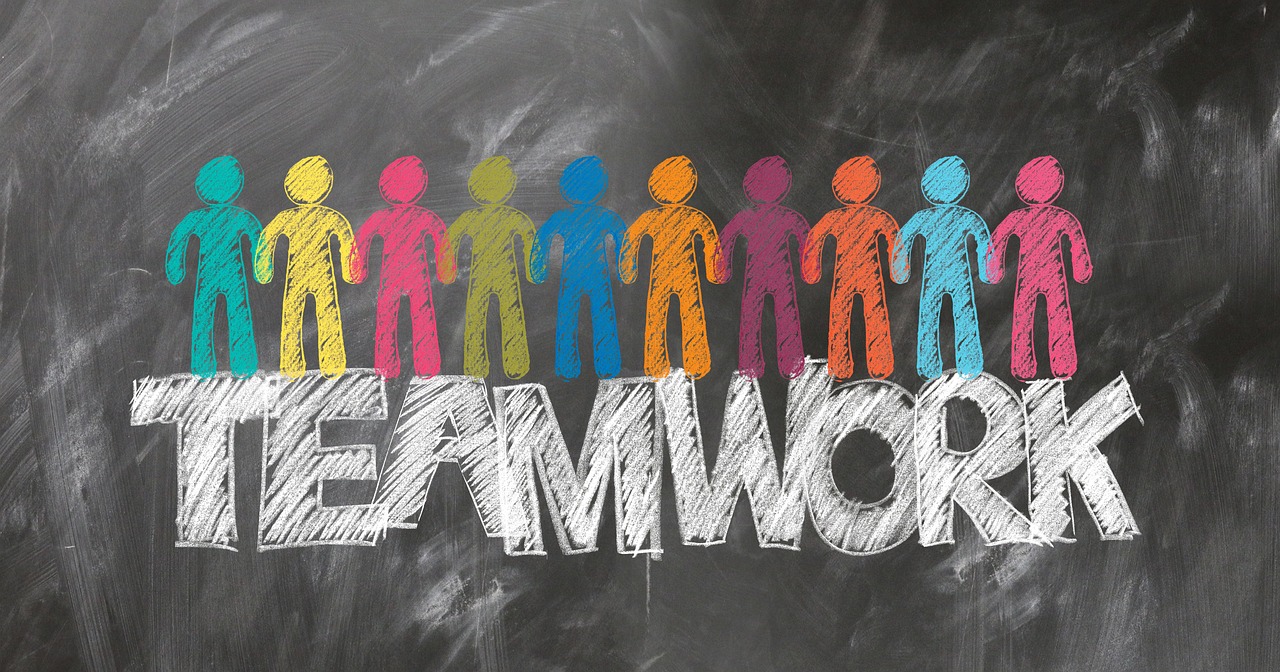Why Teamwork Skills for Teens is the Key to Success

Why Teamwork Skills for Teens is Non-Negotiable
Have you ever tried to build a puzzle with missing pieces? That’s what teamwork feels like when someone isn’t willing to collaborate. No matter how talented you are, trying to succeed alone often leads to frustration, missed opportunities, and unnecessary stress. Let's discover how teamwork skills for teens can lead them to success in school and beyond.
Whether it’s a group project, a sports team, or planning an event, teamwork isn’t just an add-on—it’s a cornerstone of success. Mastering teamwork skills for teens is essential for building confidence and achieving both personal and group goals. Teens who fail to work well in teams often face challenges like isolation, damaged relationships, and poor outcomes. On the flip side, developing teamwork skills sets you up for a lifetime of achievement, helping you shine not just in school but in future careers and personal growth.
Fortunately, teamwork isn’t a skill you’re born with—it’s something you can learn and improve. Ready to find out how to build teamwork skills for teens and overcome common challenges? Let’s get started.
How to Develop Team Spirit and Collaboration Skills
Be Open to Different Ideas
When you work with a team, not everyone will think or approach problems the same way—and that’s a good thing. For example, in a group presentation, your focus might be on bold visuals, while someone else suggests adding interactive elements. Combining these ideas could create something far more engaging than either approach alone. Being open to new perspectives doesn’t just improve results—it also builds trust and mutual respect among teammates. This is one of the foundational teamwork skills for teens.
Communicate Clearly and Respectfully
Good teamwork starts with clear, respectful communication. Miscommunication can lead to confusion, wasted time, or even hurt feelings. Imagine a scenario where your team is working on a project, but no one specifies who’s responsible for gathering research. The result? Duplicate work and missed deadlines. By being clear and respectful in your communication, you ensure everyone understands their roles, stays on track, and feels valued. Strong communication is a critical part of developing teamwork skills for teens.
Take Responsibility for Your Role
Every team member plays a vital part, and owning your responsibilities is key to the group’s success. Think of a soccer match—if the goalie doesn’t guard the net, the team loses no matter how well others play. Similarly, neglecting your role in a group project creates unnecessary pressure on others and causes frustration. When you take ownership of your tasks, you show reliability and commitment, which inspires your team to work harder, too.
Encourage and Support Your Team
Team spirit grows when teammates uplift and support one another. For instance, during a math competition, one of your teammates might struggle with solving a problem and feel like giving up. Instead of criticizing, offer encouragement and help brainstorm solutions. By being supportive, you create a positive atmosphere where everyone feels motivated and confident, which strengthens the entire team.
Celebrate Successes Together
Celebrating team achievements is an important part of fostering collaboration. Whether it’s a winning debate or a well-received art project, taking time to acknowledge everyone’s efforts reinforces the idea that each person’s contribution matters. These shared victories bring the team closer together and motivate everyone to aim even higher next time.
Handling Different Types of Challenges in a Team Situation
Challenge 1: The Free Rider
Situation: One member avoids work but still expects credit. This behavior creates resentment within the team and forces others to take on additional tasks, which can lead to burnout or incomplete work.
Tips: Address the issue kindly but directly. Say something like, “We’d really appreciate your help with this part of the project. What task would you feel most comfortable taking on?” Clearly assigning roles can encourage everyone to participate and reduce frustration. Overcoming this challenge is a key step in building teamwork skills for teens.
Challenge 2: The Dominator
Situation: A team member insists on controlling every decision, making it hard for others to share their ideas. This stifles creativity and leaves the rest of the team feeling undervalued or demotivated.
Tips: Gently redirect the conversation to create balance. For example, you could say, “That’s a great idea. Let’s also hear from others to see how their ideas can add to this.” This approach ensures everyone’s voice is heard and fosters collaboration.
Challenge 3: Conflict and Disagreements
Situation: Teammates clash over how to approach a task, causing tension and slowing progress. Without resolution, conflicts can escalate, leaving the team stuck and unproductive.
Tips: Facilitate an open discussion focused on finding solutions rather than placing blame. Remind everyone of the shared goal and encourage compromise by saying, “Let’s find a middle ground that works for everyone so we can move forward together.”
Turning Challenges into Success: Real-Life Example
A group of students was tasked with organizing their school’s annual talent show. At first, it seemed impossible. Some team members skipped meetings, one person tried to take control of everything, and others avoided responsibilities altogether. Deadlines were missed, and tensions ran high.
The turning point came when the team leader decided to reset the group’s dynamics. Roles were reassigned based on each member’s strengths—like giving the “dominator” a leadership role in logistics while involving quieter members in creative planning. Regular check-ins ensured accountability, while open discussions encouraged everyone to share their ideas.
On the event day, the talent show was a resounding success. From perfectly timed performances to seamless backstage coordination, the team pulled off an incredible event. They had faced real challenges but overcame them through communication, collaboration, and mutual respect. The experience left the students with stronger friendships and valuable lessons about teamwork skills for teens.
Build Your Teamwork Superpower
Teamwork isn’t just a skill—it’s a superpower that can unlock doors to incredible opportunities. By staying open to ideas, communicating clearly, owning your responsibilities, encouraging your teammates, and celebrating successes, you can become the kind of team player everyone admires.
And remember, challenges are just stepping stones to growth. Whether you’re dealing with a free rider, a dominator, or conflicts within your team, every experience teaches you something new.
So here’s your challenge: In your next group project or activity, practice these tips and notice the difference. Teamwork skills for teens today will pave the way for success tomorrow. Start building yours now!
GSR Tips & Tricks
How best to use Goalstar Rewards to help your child achieve their goals? How It Works
Enjoy 4 weeks of free trial for each child. Register to Start 4 Weeks Free Trial!
Here is an useful link on how to help your teen build Teamwork Skills:
•Teamwork Skills Young Professional Training
 \
\
